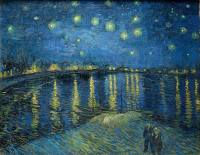The Stendhal effect
- Lea Weaver
- Jan 18, 2016
- 3 min read
Updated: Apr 4, 2022

On attending the Wheeler Centre to hear Barry Jones reflect on his life, I was struck by his mention of the Stendhal (or Florence) syndrome. He explained this is when one is so overcome by the grandeur of a great work of art or natural phenomenon (such as the Niagara Falls) that one experiences feelings of dizziness, of being overwhelmed and disoriented.
Hearing Barry use this phrase did more than just excite me–it somehow brought into focus and validated some of my own past experiences. When visiting the Basilica of Santa Croce in Florence where Machiavelli and Michelangelo are buried, Stendhal was so overcome with emotion on seeing Giotto’s frescos that he describes feeling giddy, weak kneed and overwhelmed. He wrote of the experience as ‘a kind of ecstasy…[accompanied by] palpitations…[and] fear of falling.’ Evidently this often happens to tourists visiting Florence, and indeed happened to me when visiting that city.
It also happened to me when traveling through the magnificent Arthur’s Pass in New Zealand. The scale and grandeur of the mountains, the huge tongues of green mosses and lichens hanging down the cliff faces where tiny rivulets ran, the deep valleys and chasms made the houses in a township we came to look the size of postage stamps. Looking at a painting by Van Gogh—‘Starry Night, Arles’—at Melbourne’s National Gallery I found myself crying, helplessly enraptured. It was a moment of epiphany, and I was barely able to stagger to the exit. I am profoundly moved when listening to Tony McManus playing his own guitar arrangements of Bach: this never fails to bring tears and giddiness. I cannot continue any activity, but have to sit before I fall down, as I am rendered helpless in a kind of tearful bliss. But no, this isn’t confined to me, but is an experience shared by many, and it has a name: the Stendhal effect.
In younger days, on a hill facing a sunset in Dunmoochin, Cottlesbridge, I watched the glory of the sunset. There unfolded a strange feeling of the earth moving under my feet, so that instead of a sun sinking as it set, I experienced the lip of the horizon moving up to meet the sun. Then, not knowing time or how long this experience lasted, my perceptions changed, and I encountered a feeling of being at one with the clockwork and orbits of planets and stars, of connection to it all, of knowing everything. It was me and I was All That Is. I knew at that instant that no matter how many stuff ups I made in my life there was no forgiveness -that seemed unnecessary- but there would always be another day, another turning of the earth and rotation of the sun, another chance, another opportunity ad infinitum. No mistake, no sin (if you would name it such) was too great, no opportunity ever wasted or lost. The earth would turn with me cradled in its orbit, and would do so forever. I would be blessed with an infinite number of chances: everything I would ever need.
This was a momentous experience. Was this the Stendhal syndrome? I’m not sure, but it wanted to be included. On studying music at Melbourne University, I wanted to know more about the phenomenon. Had others experienced this? What caused it? Unfortunately my lecturers didn’t concern themselves with this question, as it wasn’t on the curriculum.
What is this Stendhal effect? Why does it affect some of us in this way? Perhaps it’s the self-same energy that so seduces us in romantic love, as we catch an echo, a tiny glimpse of our perceived homeland, (the ‘numinous’ as atheist ABC radio broadcaster Phillip Adams calls it), whether it be through the broader lens of the arts or of nature, or through the soul of another person when we fall in love. This is a different and profound reality which seems to open out into broader and deeper experiences as we age, and we learn to get lost in the preciousness of each day and the profundity of its detail. A spider, a bird, an unfurling bud or the sprouting of a tiny seed sown all seem to catch an echo of this experience.
(Above image of Vincent van Gogh's 'Starry Night Over the Rhone' courtesy Wikipedia)
Comments